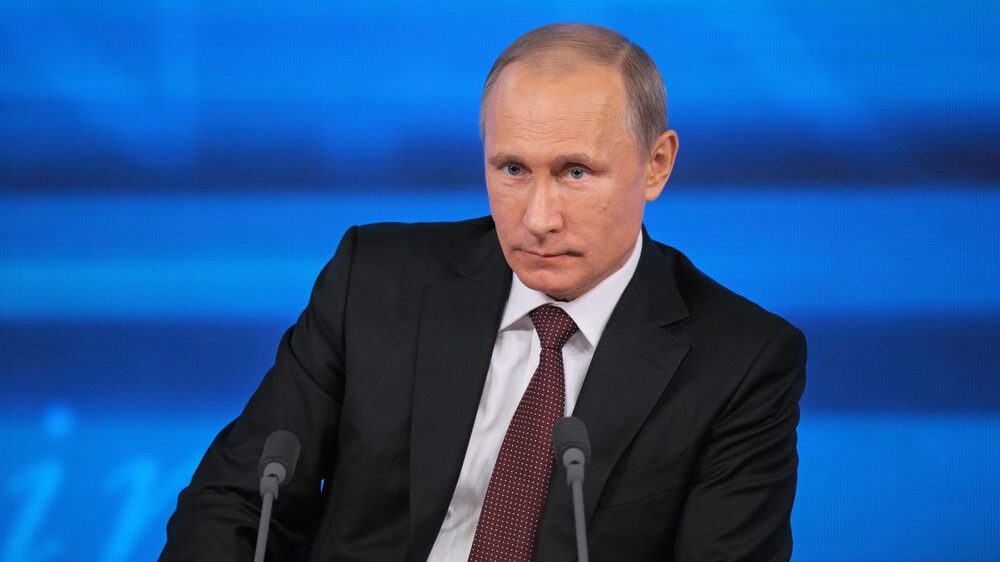
Russian President Vladimir Putin
Photo: ID1974 / Shutterstock.com
Earlier this year, the head of the International Criminal Court (ICC) President Judge Piotr Hofmański issued a statement declaring arrest warrants issued for Russian President Vladimir Putin over allegations that Russia had transferred Ukrainian children out of Ukraine during the ongoing conflict between the two countries.
Hofmański stated that “it is forbidden by international law for occupying powers to transfer civilians from the territory they live in to other territories,” and added, “Children enjoy special protection under the Geneva Convention.”
German Foreign Minister Annalena Baerbock has now called for those arrest warrants to be enforced and for President Putin to be arrested on charges of war crimes. Baerbock issued the call for Putin’s arrest while speaking in New York City at a ceremony marking the 25th anniversary of the creation of the ICC.
Baerbock also called on the ICC to close loopholes to be able to arrest heads of state who engage in wars of aggression.
“Doing nothing, not trying, that would be wrong. Because if we don’t respond, the international community’s response to Russia’s aggression is impunity,” she said and added that would mean the world would become “a place where all states will live in fear of a larger neighbour.”
“My country, Germany, has waged inhumane wars of aggression and committed the most cruel genocide, killing millions of people,” Baerbock said, referencing World War II, and added, “That’s why we have a special responsibility to do our part to ensure that such crimes never happen again.”
Baerbock’s call for the arrest of President Putin comes just over a month before the Russian leader is scheduled to visit South Africa August 22-24 for a summit of the BRICS (Brazil, Russia, India China South Africa) countries. This will be the first time Putin has left Russia since the ICC warrant was issued in March.
“Peace through law. This is the strength that the international community holds against Russia’s brutal war of aggression,” Baerbock said after raising the ICC for issuing the warrant against President Putin.
It seems highly unlikely that South Africa would arrest the Russian leader, as South African President Cyril Ramaphosa described such a move as an act of war.
“Russia has made it clear that arresting its sitting President would be a declaration of war,” President Ramaphosa said and added, “It would be inconsistent with our Constitution to risk engaging in war with Russia.”
South Africa, which is a signatory to the ICC’s Rome statute and has ratified the statute, unlike Russia and Ukraine, has sought an exemption from carrying out the arrest of President Putin claiming it could threaten the “security, peace and order of the state.”
The Democratic Alliance (DA), the main opposition party in South Africa, has attempted to force the government to arrest Putin, however.
President Ramaphosa’s comments may be based upon statements made by former Russian President Dmitry Medvedev, who stated in March that any attempt to arrest President Putin in another country would be seen as a declaration of war against Russia.
“Let’s imagine—obviously this situation which will never be realised but nevertheless let’s imagine that it was realised: The current head of the nuclear state went to a territory, say Germany, and was arrested,” Medvedev said.
“What would that be? It would be a declaration of war on the Russian Federation,” he said and went on to add, ”And in that case, all our assets—all our missiles et cetera—would fly to the Bundestag, to the Chancellor’s office.”
Medvedev, who now serves as Deputy Chairman of the Security Council of the Russian Federation, also threatened the ICC itself after the warrant was issued.
“It is quite possible to imagine a hypersonic missile being fired from the North Sea from a Russian ship at the Hague courthouse. Everyone walks under God and rockets. Look carefully to the sky … ” Medvedev said.
